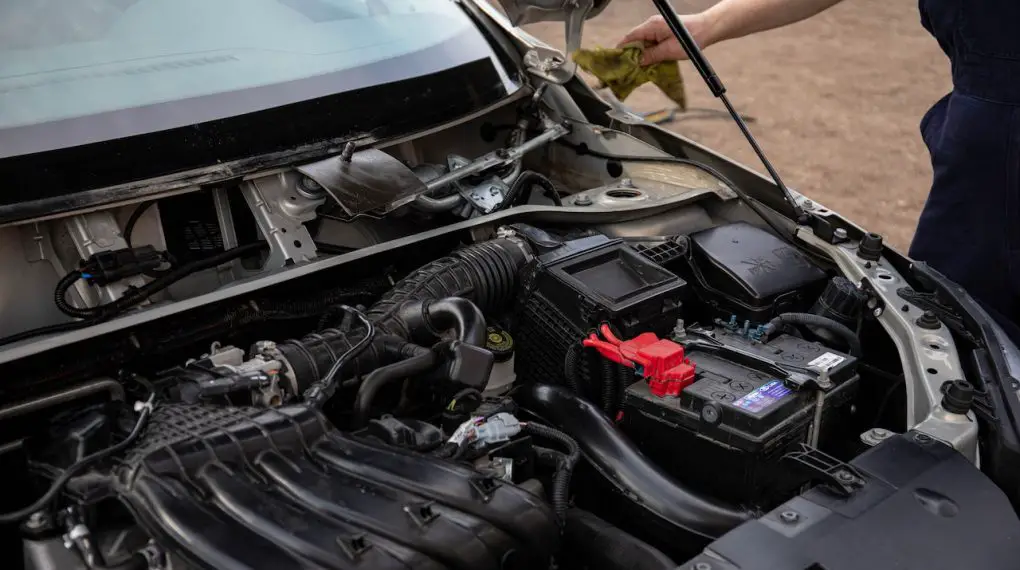No power to AC compressor, huh? You’re in for a sweltering drive if you don’t get it fixed ASAP. But hey, don’t sweat it yet! This article will guide you through diagnosing and troubleshooting issues related to the AC compressor not getting power.

Table of Contents
Common Causes of No Power to AC Compressors and their Solutions
The following are the common causes of no power to AC compressor as well as their solutions.
Blown AC Fuse
Picture this. The AC fuse is like a bouncer at a club, controlling the electrical flow or “crowd” going into the compressor. But sometimes, the crowd gets too rowdy (electrical overload), and the bouncer (fuse) takes one for the team, preventing damage to the club (your compressor). Here’s how you find out if the bouncer is out.
Identifying a Blown AC Fuse
You’ll have to take a peek in your car’s fuse box. If the wire in the fuse is broken or burned, that’s a sure sign the fuse has blown. It’s like seeing the bouncer knocked out cold outside the club.
Replacing a Blown AC Fuse
Once you’ve identified a blown fuse, replacing it is generally a straightforward job. You’ll need a replacement fuse of the same rating and a fuse puller or a pair of needle-nose pliers. Pop the old one out, and put the new one in. Just make sure the club is closed (your car is off) when you’re replacing the bouncer!
Malfunctioning AC Compressor Clutch
A bad clutch could mean no power to the AC compressor. The clutch is like the conductor of an orchestra, directing when the compressor should play and when it should rest. But what happens when the conductor can’t lead?
Symptoms of a Bad AC Compressor Clutch
If the clutch isn’t working right, it won’t engage the compressor, and you might hear a rattling or squealing noise. It’s like an orchestra trying to play without a conductor. Chaos, and certainly no beautiful music (or in this case, cool air).
How to Repair or Replace an AC Compressor Clutch
Repairing or replacing a compressor clutch isn’t a beginner DIY job. But if you’re feeling brave and have the right tools, it can be done. But remember, when in doubt, consult a professional.
Bad AC Relay
A bad relay could be another culprit behind no power to your AC compressor. Imagine the relay as a messenger, passing the electric current from the power supply to the compressor. But what if the messenger doesn’t deliver the message?
Signs of a Bad AC Relay
Signs of a bad AC relay can include no power to the compressor (obviously!), an AC system that cools intermittently, or an AC system that doesn’t cool at all. It’s as if the messenger got lost or just decided to take the day off.
Steps to Replace a Bad AC Relay
Replacing a bad AC relay is usually a straightforward task, like changing the bouncer at the club. Locate the AC compressor relay, remove the faulty one, and replace it with a new one. Make sure to choose the correct relay for your car’s make and model.
Electrical Faults
Electricity is like the blood running in the veins of your car’s AC system. Without it, well, there’s no life. So, it makes sense that electrical faults can cause no power to the AC compressor. But how do you identify these problems and fix them?
Common Electrical Issues Affecting AC Compressor Power
Electrical issues that could cause power failure to your AC compressor include damaged wires, poor connections, and corrosion. You know, just like how a blocked artery or a cut can disrupt blood flow in our bodies.
Diagnosing and Fixing Electrical Faults
Diagnosing electrical faults involves using a multimeter to check for continuity and voltage at different points in the circuit. Once you’ve found the problem, it’s a matter of replacing the damaged part or cleaning up any corrosion.
Check out these other related articles…
AC Compressor Switch: Your Complete Guide
Can AC Compressor Be Repaired? Unraveling the Truth
AC Compressor Blanket: Your Easy Guide
AC Compressor Explosion: Guide to Understanding & Prevention
AC Compressor Size: Your Guide to Getting it Right
Troubleshooting No Power to AC Compressor
Troubleshooting involves trying to fix the problem once you’ve identified it. It might be as simple as replacing a blown fuse or as complex as repairing a faulty electrical circuit. Again, always remember: if you’re not sure or comfortable doing this yourself, seek professional help. Your car, and your safety, are too important to risk.
When to Seek Professional Help
If you’ve tried diagnosing and troubleshooting but still have no power to your AC compressor, it might be time to call in the pros. Or maybe you’re just not comfortable playing car doctor. That’s okay! Nobody knows everything and professional mechanics are there for a reason.
Preventive Measures to Avoid No Power to AC Compressor Issues
What can you do to prevent this problem from occurring in the first place? Here are a few things you can do.
Regular Maintenance of AC Components
Maintaining your car’s AC system regularly can help prevent issues like no power to the AC compressor. This includes cleaning, refilling the refrigerant, and regular check-ups of the components. It’s like taking vitamins and getting regular check-ups to prevent getting sick.
Proper Use of AC System
Lastly, using your car’s AC system properly can go a long way in preventing problems. This includes not overusing it, using the right settings, and turning it off when not needed. Remember, every part of your car needs some love and care, even the AC!